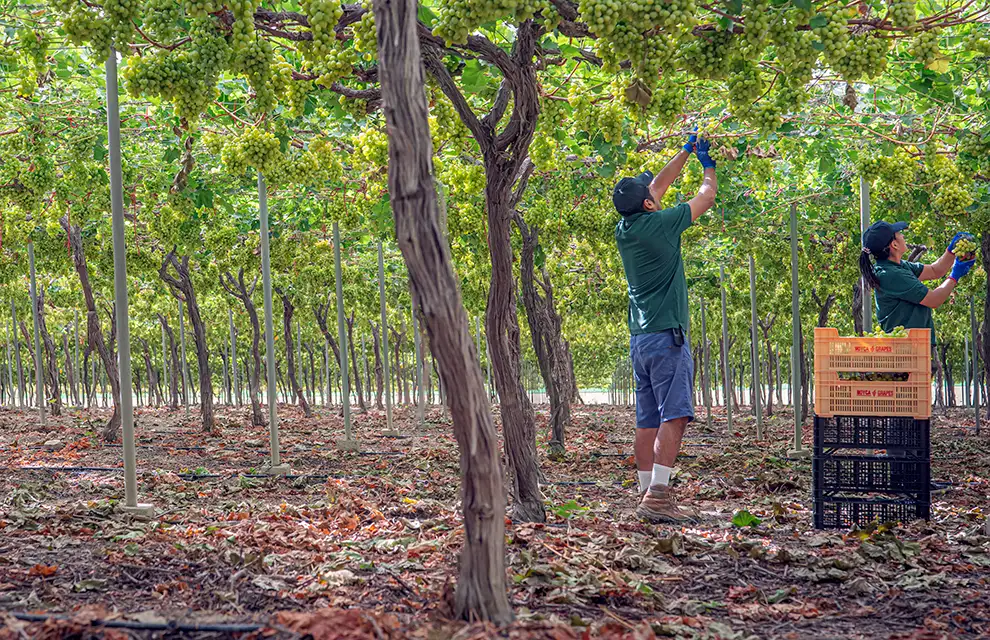Preserving Soil Fertility: A Shared Responsibility
Changes in climatic conditions, especially when they lead to extreme situations, directly impact crops. At Moyca, this has driven us to strengthen our investments in protective coverings and drainage systems to minimize losses and safeguard our fruit.
Water scarcity has also been a growing concern for several years. Our origin and main production center is the Region of Murcia, where water shortages have always been a reality. This has made us fully aware of the importance of responsible resource management.
For this reason, we take action within our reach by investing in advanced irrigation systems and implementing highly technical production processes that optimize water use. The challenge is to balance efficient consumption with the specific needs of table grapes, which require particular conditions to achieve the highest quality. In the medium term, we envision a sector with greater investment in water recovery, monitoring technologies, and more drought-resistant varieties.
In the face of climate change, we must also address another major challenge: preserving soil fertility and preventing its degradation. This responsibility cannot be postponed and serves as an example of collaboration between institutions and companies.
To tackle this situation, regenerative practices have become indispensable for ensuring the present and future of agriculture. Implementing policies for the sustainable use of resources is key.
We believe we are on the right path, but there is still much progress to be made in soil conservation and recovery. At Moyca, we apply techniques aimed at erosion control, ensuring the fertility of the land we cultivate and the production of higher-quality grapes.
“Regenerative practices have become indispensable for ensuring the present and future of agriculture by implementing policies for the sustainable use of resources.”
Plant Health
In recent years, we have also observed an increase in pests and fungal diseases due to more extreme temperature conditions, which also put stress on the crop. This phenomenon has made crop management more complex, requiring us to update our processes to maintain product quality. This is non-negotiable, as market demands remain unchanged.
Consequently, we have intensified the use of biological and phytosanitary controls while considering agrochemical regulations that limit available tools. Constant monitoring of the vineyards is essential to ensure a healthy and sustainable production.
To preserve product quality during storage and transportation, we have also adopted solutions such as controlled-temperature environments, ensuring that quality is maintained without compromising our environmental responsibility.
This comprehensive approach guarantees that we can offer seedless table grapes that are not only of high quality but also respectful of the natural environment.
